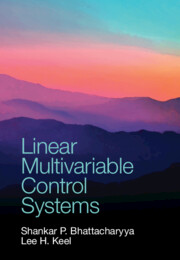Refine search
Actions for selected content:
36885 results in Cambridge Textbooks
1 - The State and State Capacity
- from Part I - A Historical Overview
-
- Book:
- Latin American Politics and Society
- Published online:
- 11 June 2022
- Print publication:
- 09 June 2022, pp 17-48
-
- Chapter
- Export citation
16 - Latin America in Perspective: Lessons and Prospects
- from Conclusion
-
- Book:
- Latin American Politics and Society
- Published online:
- 11 June 2022
- Print publication:
- 09 June 2022, pp 547-551
-
- Chapter
- Export citation
3 - Breaking International Law
- from Part I - Fundamentals
-
- Book:
- Politics and International Law
- Published online:
- 27 June 2022
- Print publication:
- 09 June 2022, pp 103-137
-
- Chapter
- Export citation
List of Tables
-
- Book:
- Politics and International Law
- Published online:
- 27 June 2022
- Print publication:
- 09 June 2022, pp xvi-xvi
-
- Chapter
- Export citation
References
-
- Book:
- Latin American Politics and Society
- Published online:
- 11 June 2022
- Print publication:
- 09 June 2022, pp 570-604
-
- Chapter
- Export citation

Linear Multivariable Control Systems
-
- Published online:
- 02 June 2022
- Print publication:
- 13 January 2022
-
- Textbook
- Export citation
Brief Contents
-
- Book:
- Modeling Monetary Economies
- Published online:
- 17 June 2022
- Print publication:
- 02 June 2022, pp vi-viii
-
- Chapter
- Export citation
10 - The Executive
- from Part III - Central Government in the United Kingdom
-
- Book:
- Constitutional and Administrative Law
- Published online:
- 19 May 2022
- Print publication:
- 02 June 2022, pp 315-352
-
- Chapter
- Export citation
Part V - Accountability (I): Scrutiny, Openness and Good Administration
-
- Book:
- Constitutional and Administrative Law
- Published online:
- 19 May 2022
- Print publication:
- 02 June 2022, pp 517-578
-
- Chapter
- Export citation
6 - International Monetary Systems
- from Part I - Money
-
- Book:
- Modeling Monetary Economies
- Published online:
- 17 June 2022
- Print publication:
- 02 June 2022, pp 99-124
-
- Chapter
- Export citation
17 - The Parliamentary Ombudsman
- from Part V - Accountability (I): Scrutiny, Openness and Good Administration
-
- Book:
- Constitutional and Administrative Law
- Published online:
- 19 May 2022
- Print publication:
- 02 June 2022, pp 538-555
-
- Chapter
- Export citation
2 - Equilibrium Trade in the Economy without Money
- from Part I - Money
-
- Book:
- Modeling Monetary Economies
- Published online:
- 17 June 2022
- Print publication:
- 02 June 2022, pp 20-32
-
- Chapter
- Export citation
Copyright page
-
- Book:
- Modeling Monetary Economies
- Published online:
- 17 June 2022
- Print publication:
- 02 June 2022, pp iv-iv
-
- Chapter
- Export citation
1 - The Economy and the Planner’s Solution
- from Part I - Money
-
- Book:
- Modeling Monetary Economies
- Published online:
- 17 June 2022
- Print publication:
- 02 June 2022, pp 3-19
-
- Chapter
- Export citation
2 - The Domestic Sources of the UK Constitution
- from Part I - Constitutional Regulation in the Absence of a Codified Constitution
-
- Book:
- Constitutional and Administrative Law
- Published online:
- 19 May 2022
- Print publication:
- 02 June 2022, pp 23-60
-
- Chapter
- Export citation
Table of European Instruments
-
- Book:
- Constitutional and Administrative Law
- Published online:
- 19 May 2022
- Print publication:
- 02 June 2022, pp lii-lv
-
- Chapter
- Export citation
Dedication
-
- Book:
- Modeling Monetary Economies
- Published online:
- 17 June 2022
- Print publication:
- 02 June 2022, pp v-v
-
- Chapter
- Export citation
Figures
-
- Book:
- Modeling Monetary Economies
- Published online:
- 17 June 2022
- Print publication:
- 02 June 2022, pp xvii-xx
-
- Chapter
- Export citation
13 - The UK Supreme Court and the Office of Lord Chancellor: Towards an Independent Judicial Branch?
- from Part III - Central Government in the United Kingdom
-
- Book:
- Constitutional and Administrative Law
- Published online:
- 19 May 2022
- Print publication:
- 02 June 2022, pp 413-432
-
- Chapter
- Export citation
3 - The UK Constitution and International Legal Orders
- from Part I - Constitutional Regulation in the Absence of a Codified Constitution
-
- Book:
- Constitutional and Administrative Law
- Published online:
- 19 May 2022
- Print publication:
- 02 June 2022, pp 61-84
-
- Chapter
- Export citation
